Guide: The Differences and Similarities Between SEO and SEM

The world of marketing is chock full of acronyms and industry jargon, and it can be daunting to read posts about it and see experienced marketers throwing around these terms. Terms that, to them, are part and parcel of everyday life, but to you are near-meaningless nonsense. Sure, you might be able to infer some of them from context clues or maybe they throw a basic definition in parentheticals when they say it the first time, but often, they don't.
Now and then, I like to step back and realize that not everyone reading my blog is an advanced marketer or an experienced business owner. Plenty of people are wading into these waters for the first time. In fact, with the pandemic throwing the world into chaos and record-high unemployment, there are thousands of people trying to start new businesses just to keep some kind of income going. Now, more than ever, people are trying to figure out just what any of this nonsense means. There are dozens of acronyms in the marketing world.
Truth be told, we all had our moments as beginners. Not everyone has a cunning mentor or a clever teacher to guide our way. Many of us have to struggle and figure everything out on our own. For those of you doing your research, I'm here to help with some explanations.
First up, here are two acronyms that get thrown around a lot: SEO and SEM. You may have seen them defined before - Search Engine Optimization and Search Engine Marketing.
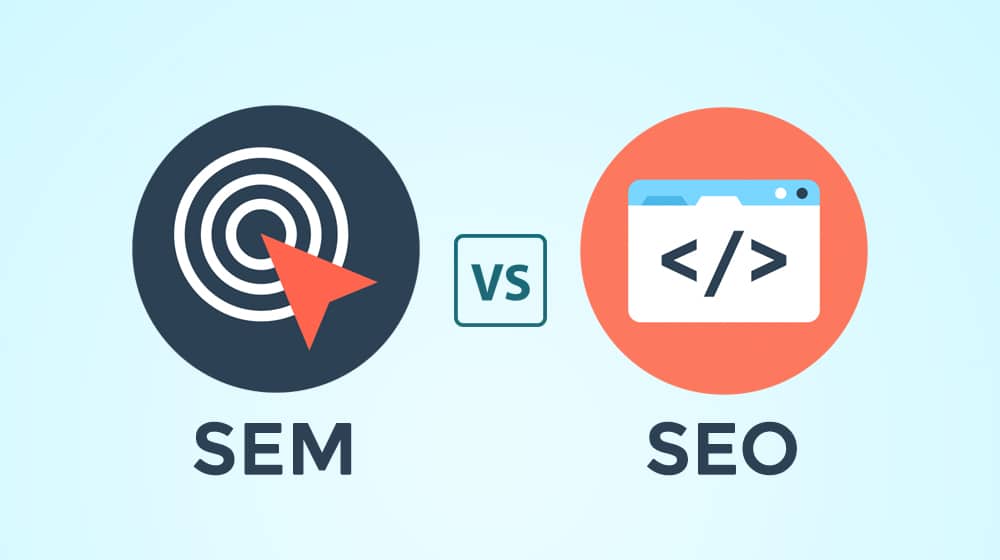
What are they, though, and how are they alike, how are they different, and how do they work together?
 30 Second Summary
30 Second Summary
You'll find two main ways to get traffic from search engines: SEO and SEM. With SEO, you can improve your site's ranking with content, links and technical fixes without paying Google directly. You have to pay for SEM with Google Ads to show up in search results. While SEO takes longer but builds lasting results, SEM gives you quick traffic that stops when you stop paying. Your best approach is to use both - start with SEO basics, then add SEM to kickstart growth while your organic efforts build up over time.
What is SEO?
Let's start with SEO. Search Engine Optimization is an organic practice that centers around optimizing various aspects of your site and your web presence that search engines care about.
Now, there are a few caveats here. First of all, we say "search engines", but we mean Google. Bing and Yahoo exist, but they have less than 10% of the market share. YouTube is technically a search engine, but it has its own rules and content. DuckDuckGo exists and is growing in popularity, but it's not yet a powerhouse you have to worry about.
"Organic practice" here means primarily that you're dealing with details you can handle yourself, without having to pay for them directly. Things like producing content, things like caring about keywords, things like building links.
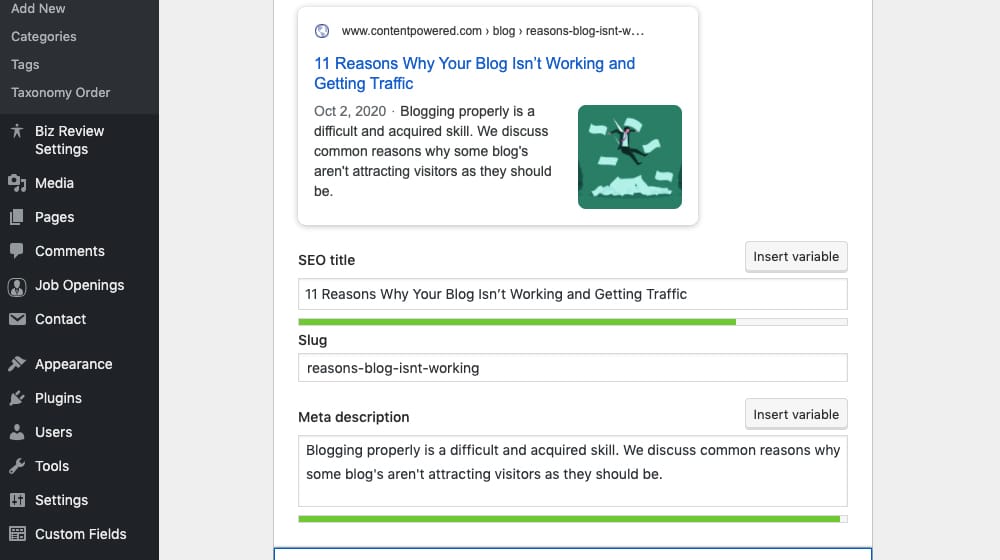
Yes, all of these can be paid for. A lot of SEO involves paying for tools, paying for access, paying for sponsored posts, paying for content; it's very far from free. Organic does not mean free, it means not Paid. More on that later.
When I say "the factors that search engines care about", I'm talking about specific elements of a site and a web presence that matter, either in a positive light or a negative light. For example:
- Content quality. Google likes high-quality content, so producing high-quality content is a positive factor while publishing low-quality content is a negative factor.
- Links. Google was founded on mapping the links between sites and their relationships, and it's still important today; high-quality, relevant links are good, while links from spam sites and known black-hats are bad.
- User experience. A better, easier user experience is better for SEO.
There are a lot of these factors. I mean, A Lot. Brian Dean of Backlinko has compiled one of my favorite resources on the matter here, in his post about the 200 search ranking factors Google cares about.
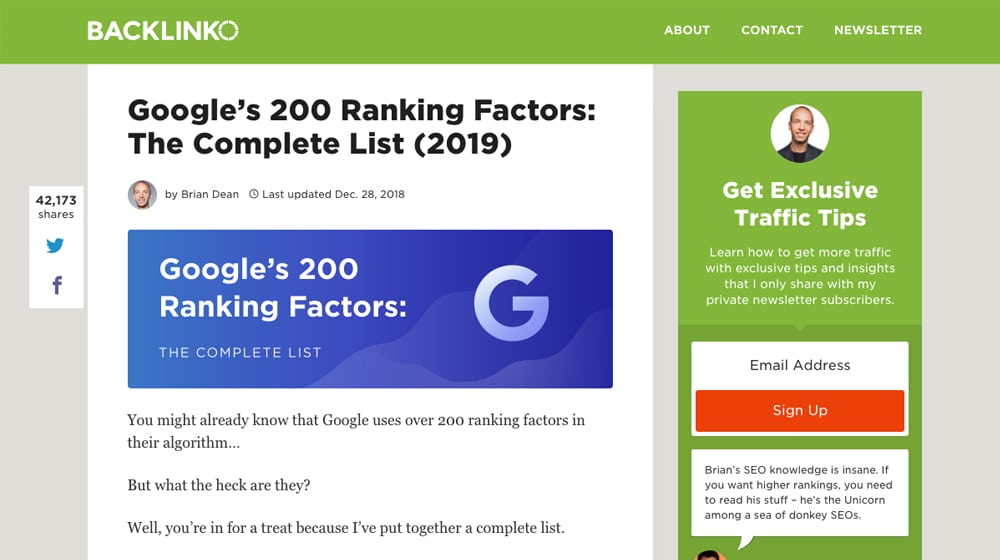
Another caveat: 80% of these aren't very important right away. If you're a beginner, you don't need to treat this as a checklist and run down it trying to optimize every factor. Some of the factors are much more important than others.
- Domain age isn't important enough for you to go out and buy an old domain versus starting a new one.
- Site speed, load times, and Core Web Vitals are important in and of themselves, and important because they influence or affect many other metrics.
- Having a private WHOIS isn't going to kill your site; it's a negative factor that is only negative in the context of having several other negative factors already in play. These are also becoming more commonplace, so it's not clear if this even a search factor at all.
Everything is contextual, everything is relative, and a large part of deconstructing Google's algorithm is recognizing that there are so many factors because very few of those factors are important on their own. It's all interconnected.
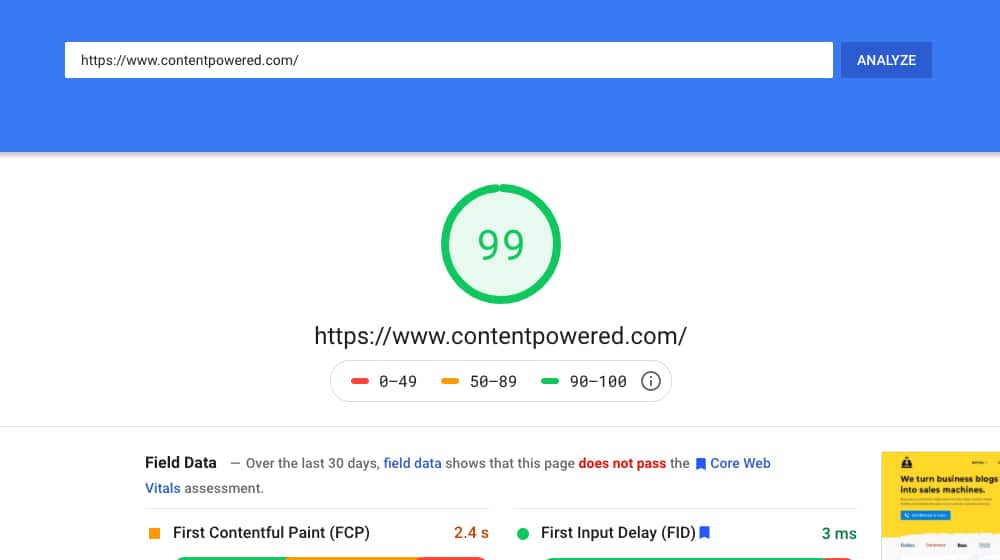
The Backlinko article is one of those resources that looks daunting at first glance but exists more as an example and a reference than as a guide. As long as you hit a few of the major bases (good content, good links, fast and mobile-accessible site), you're 90% of the way there.
Examples of SEO
SEO encompasses a ton of different, disparate practices, and it is often divided into different categories. Some people like to talk about it in terms of the division between on-page SEO and off-page SEO (that is, SEO that happens on your website and SEO that happens on other websites you don't own).
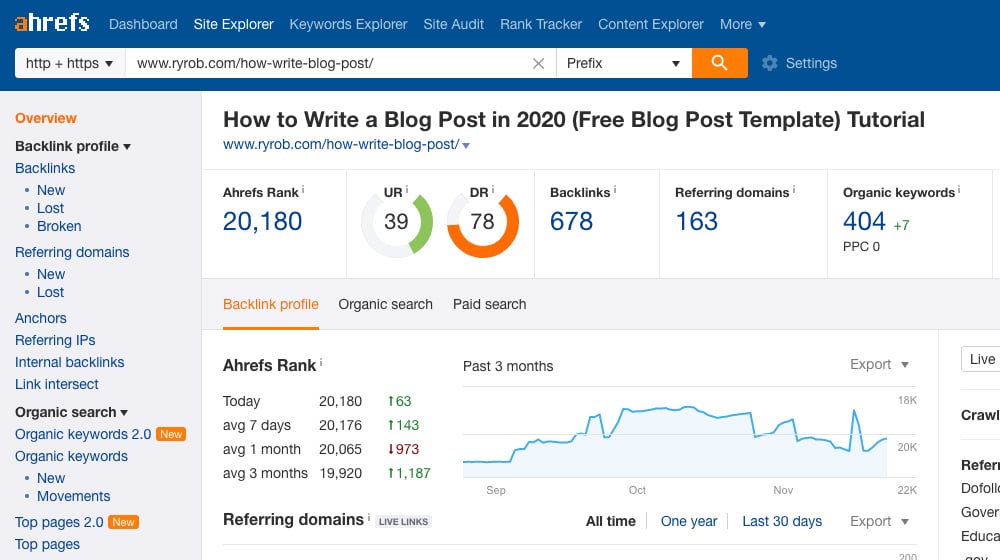
Other people segment it further into technical SEO. SEO strategies include:
- Performing keyword research to guide your overall marketing strategy.
- Producing highly detailed and insightful content on your topics, as guided by your keywords.
- Optimizing your content. This includes many details, such as keyword usage, formatting, usage of H1 tags, meta titles and descriptions, and so on.
- Choosing good options for user experience, like human-readable URLs, a fast-loading page, mobile compatibility, and so on.
- Link building; finding high-quality, relevant websites in your niche and getting them to link to you, through a variety of different methods.
- Building up an audience on social media platforms like Facebook, Twitter, LinkedIn, or Reddit, and using them to refer traffic to your site.
- Optimizing Local SEO factors and profiles on sites like Yelp or TripAdvisor, as relevant.
And more, of course. There's a ton that goes into SEO, so much so that people like me can spend years specializing in it and still only be intermediate-level professionals. Experts can spend decades learning all about it, and even then, they often specialize in specific parts of SEO, like link building or content creation.
What is SEM?
SEM is Search Engine Marketing, and where SEO is organic, SEM is paid. Specifically, SEM focuses on Google Ads, but may also include Bing Ads, ads on specific search engines like YouTube or Amazon, or ads on other market search engines like Baidu. Again, like SEO, 90% of the time you're going to be concerned with Google Ads when you're talking about SEM. The others tend to have their unique strategies.
SEM is all about paying money for traffic, directly. I mentioned that SEO isn't free, but the opposite is not true here; you can't do SEM without paying money. There's no such thing as "organic SEM".
We create blog content that converts - not just for ourselves, but for our clients, too.
We pick blog topics like hedge funds pick stocks. Then, we create articles that are 10x better to earn the top spot.
Content marketing has two ingredients - content and marketing. We've earned our black belts in both.
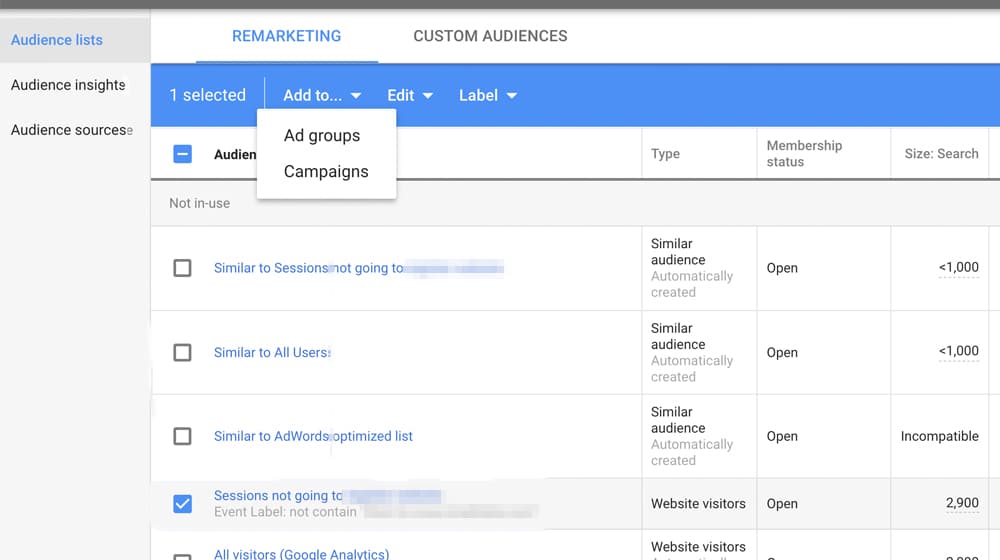
With that said, that's one of the major drawbacks of SEM. You have to pay to play, and more importantly, when you stop paying, you also stop getting any benefit from it. SEM brings in immediate, potentially valuable traffic, and that traffic disappears when you stop paying for it.
Make no mistake, however; SEM is no less complex than SEO simply because it deals with a single ad system. The entirety of SEM encompasses a lot of different factors, such as:
- Creating and launching ad campaigns.
- Split testing ad sets and individual ads to optimize details like copy and images.
- Crafting relevant, interesting, and compelling ad copy in the first place.
- Monitoring ad performance and tweaking ads over time to perform better.
- Using second-hand marketing strategies like newsletters and retargeting.
SEM can be an entire career, and indeed it is. There are entire companies that specialize in nothing more (but nothing less) than simply managing your paid ads for you. There are expensive and high-quality tools designed specifically for managing and optimizing paid ads. It's an entire industry.
What's the Difference?
You can already see some of the differences. There are more differences between SEO and SEM than there are similarities.
- They both deal with search engines, primarily Google.
- They both typically cost money, though SEO can be done for free or partially free.
- They both have the same goal of bringing traffic to your site, to leverage for your business's growth.
- They both require you to perform keyword research, know who your target audience is, and understand how to connect the two.
On the other hand, there are stark differences. SEM requires you to be operating within Google's Ad system, whereas SEO is operating primarily on your website. SEM is comparatively narrow and focused on more small details, while SEO operates at a macro level and adjusts factors often influencing your entire site. SEM might have you tweaking the color balance of an image or the phrasing of a sentence, while SEO has you guiding your overall content strategy or changing your site navigation. SEO also takes much longer to achieve results, whereas SEM delivers results almost instantly.
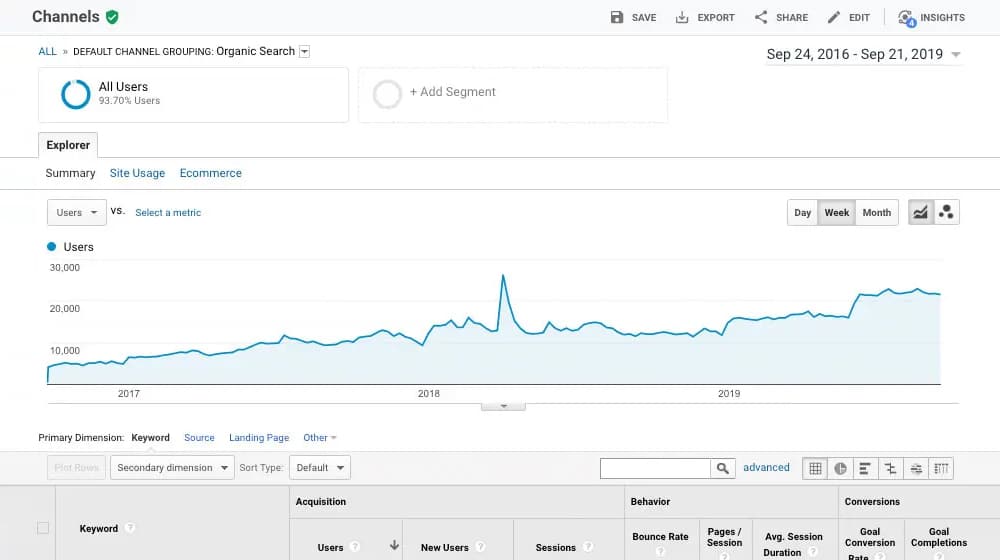
In a way, you can think of it as a push versus a pull. SEM pushes people from your Google to your site, by paying Google to make it attractive for them to do so. SEO pulls people from Google to your site, by making your site attractive for them to visit.
Examples of SEM
Unlike SEO, there aren't a lot of examples of SEM I can give you, because it's just one thing: managing paid ads through Google Ads. I already touched on this briefly in the section above. Performing keyword research to guide your campaign strategy, developing campaigns, split testing ads, monitoring ad performance, and tweaking based on the data you receive; that's all SEM.
You also have to concern yourself with some more financial elements, such as the bidding structures, financial optimization, automation, and ad auction functionality. This is all very important to learn before you get too in-depth with SEM, simply because mistakes can be costly.
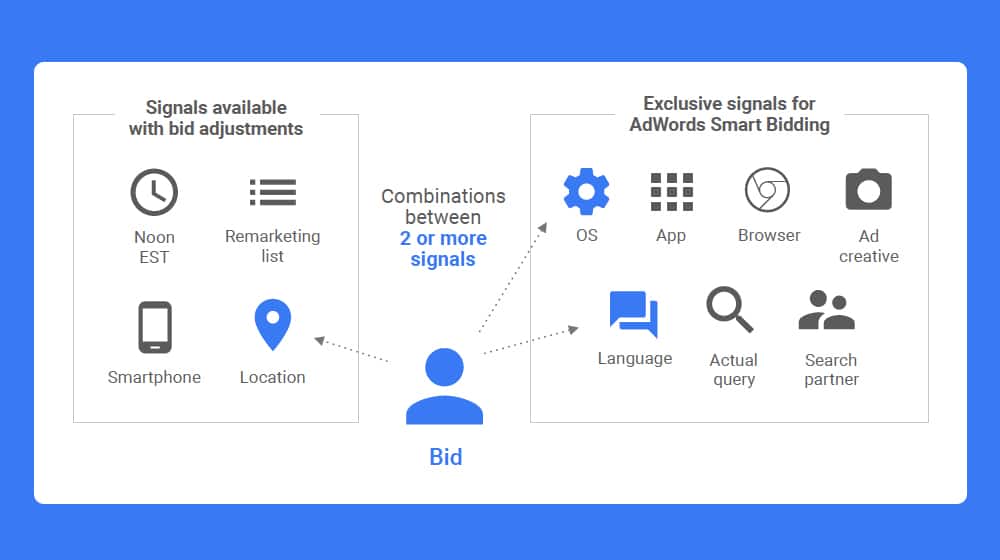
There's an argument to be made that "search engine marketing" should encompass SEO, and that what I've defined as SEO above is PPC: Pay Per Click advertising. Backlinko makes this argument in their definition, for example.
Which is Better: SEO or SEM?
Everyone inevitably asks this question, and I always have the same answer: neither. SEM and SEO are two sides of the same coin. They're complementary strategies, two halves of a whole.
SEM is short-term, fundamentally. It doesn't start working until you start paying for it, and when you stop paying for it, it stops working. You can leverage it to scale up your business, paying for traffic that you convert into sales, which results in profits, that you can reinvest in more traffic. This feedback loop is great, but it inevitably has a cap; there are only so many people in your target audience, and only so many of them will convert.
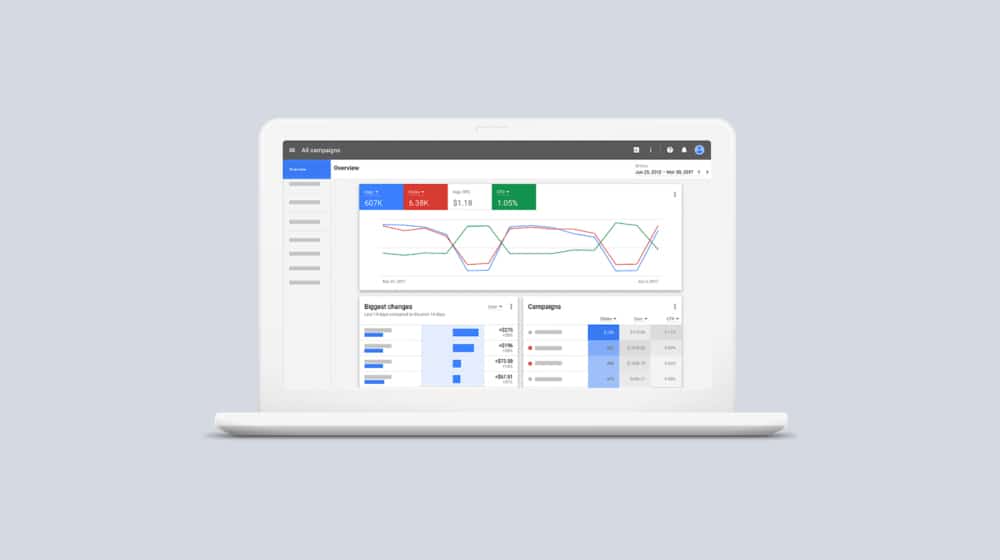
SEO is long-term. Virtually no SEO techniques will kick-start your website. It's more like snowfall; over time, individual snowflakes will stack up until eventually you've blanketed the land or caused an avalanche. SEO starts slow but builds and compounds upon itself, and every tweak and adjustment you make improves and builds upon what you've already done.
Start with SEO. From the moment you start designing your site, you should be working on foundational elements of SEO, like user experience, site speed, navigation, and mobile compatibility. Once you have that foundation in place, with content production ongoing, start using SEM. SEM kick-starts your traffic and can help you develop your initial audience. You then use more SEO techniques to leverage that audience. Turn them into customers, and listen to their feedback, letting it guide future SEM targeting.
SEO vs SEM vs SMM
To put a cap on today's beginner's guide, I want to mention another acronym you might have seen thrown around: SMM. SMM stands for Social Media Marketing, and fits in here along with SEO, specifically in the off-site SEO segment.
SMM involves something I mentioned above; setting up and configuring social media profiles, building up audiences on them, and leveraging them to bring traffic to your site. Since it's not reliant on Google, it's not necessarily considered part of SEO. And, since these social networks all have ad networks of their own and they aren't tailored to specific search queries, this strategy isn't usually considered to be SEM. Thus, it stands along with an acronym of its own.
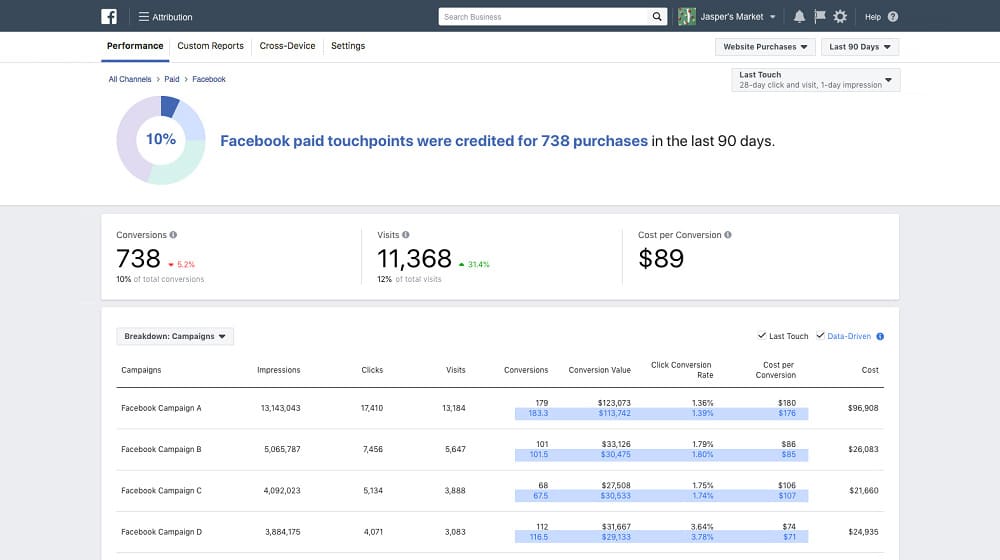
Much like SEO and SEM, SMM is a complementary strategy. You don't use it instead of either of the others; you use it alongside those others. Use social media to send people to your site. Use search engines to send people to your site, or send people to your social media profiles, which then send them to your site. Use your site to send people to your social media profiles. It all feeds back in on itself and builds up, helping you reach the critical mass of success you need for a self-sustaining site.
What do you think; have I been helpful for you today? If you have any questions about any of these, please, feel free to ask them in the comments. I'll do my best to answer them, either directly or in a new blog post later, depending on how deep the topic is. I love to hear from you!



 30 Second Summary
30 Second Summary
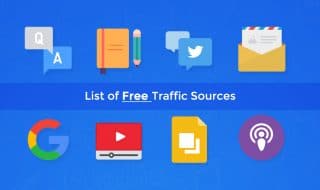

June 08, 2021
Thanks for this! I always thought the two were synonyms. I'd use them interchangeably until someone corrected me lol
June 11, 2021
Hey Barbara,
You're not alone; it's come up in enough conversations that I finally decided to write a dedicated blog post about the subject.
I'm happy it helped you!
March 20, 2022
You did a great job of explaining the key differences. Thanks.
March 25, 2022
You're welcome!